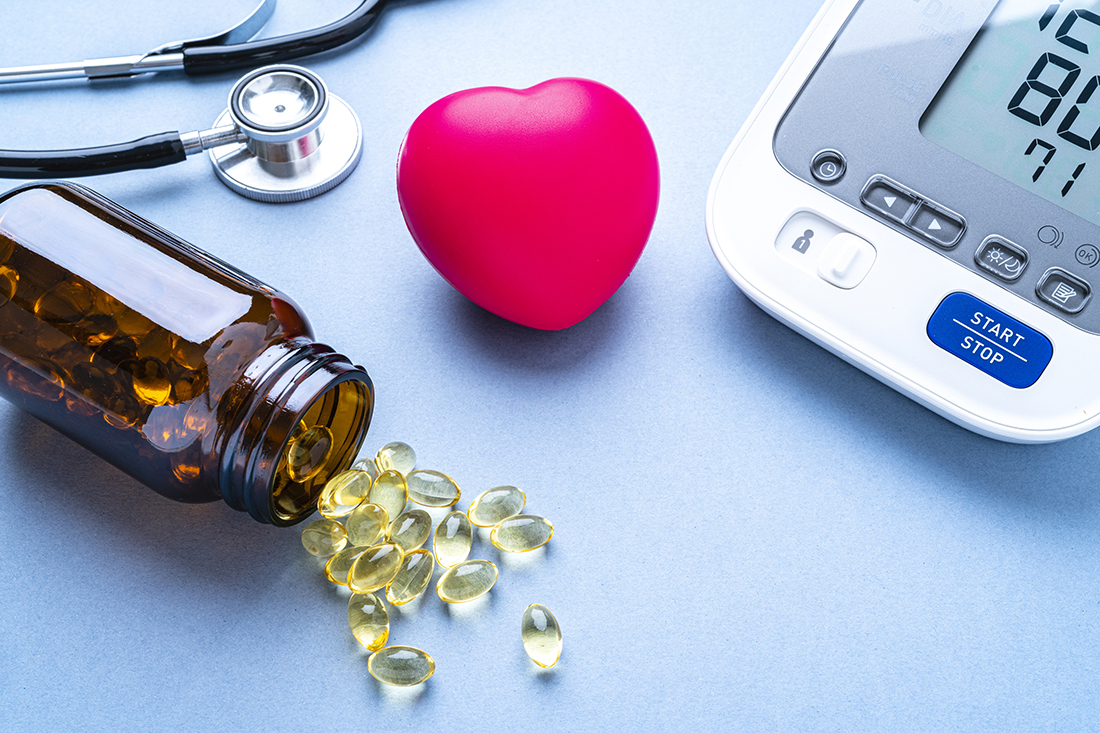
Dear Dr. E,
My doctor told me everyone with diabetes needs to be on an ACE inhibitor or an ARB because they “protect the kidneys”. Is that true? What if my blood pressure is fine?
Dr. Edelman: Controlling blood pressure is one of the most important things you can do to protect both your heart and your kidneys. Not everyone may realize the connection, but high blood pressure over the long term can have the single most important damaging effect on your kidneys.
ACE Inhibitors and ARBs
ACE inhibitors (ACE stands for angiotensin-converting enzyme) and ARB (ARB is angiotensin receptor blocker) medications have been shown to protect your kidneys in addition to lowering blood pressure. And believe it or not, controlling blood pressure is way more important than controlling blood sugar when it comes to your kidneys.
Over 25 years ago, large studies were done using ACE inhibitors in type 1 diabetes and ARB medications in type 2 diabetes, and the results clearly showed that, although these medications lowered blood pressure, they also reduced the progression of diabetic kidney disease. Since then, many doctors and healthcare organizations pushed providers to put all of their patients with diabetes on one of these two types of medicines. In fact, insurance companies will send letters to providers encouraging them to put their patients on an ACE inhibitor or ARB if they are not currently on one.
When ACE Inhibitors and ARBs are Necessary
So, to answer your question, in my opinion, these medications are indicated if either (or both) of the following are present:
- You have protein in the urine/elevated microalbumin level. We measure the microalbumin level routinely on a urine collection, and if it’s above normal, the test should be repeated because protein in the urine does fluctuate.
- You have high blood pressure.
More about Blood Pressure
Here is the caveat for high blood pressure. If most of your life your blood pressure was 110/70 mmHg, and after you were diagnosed with diabetes your readings increased to 120/80, I consider that high blood pressure because you’re now higher than your typical baseline. However, if your blood pressure is 120/80 and you don’t have that history of a lower baseline, then I’d say you’re fine. In my own personal practice, if someone’s blood pressure is truly normal and there’s no protein in the urine, then I don’t prescribe these medications.
ACE or ARB?
So what if you do have protein in the urine and/or high blood pressure? You can be prescribed either medication (some examples are below) and it really just depends on whichever one you can get through your insurance, or the cheapest one if you’re paying cash.
Examples of ACE inhibitors include:
- Benazepril (Lotensin)
- Captopril (Capoten)
- Enalapril (Vasotec)
- Fosinopril (Monopril)
- Lisinopril (Prinivil, Zestril)
- Moexioril (Univasc)
- Perinopril (Aceon)
- Quinapril (Accupril)
- Ramipril (Altace)
- Trandolapril (Mavik)
Examples of ARBs include:
- Azilsartan (Edarbi)
- Candesartan (Atacand)
- Irbesartan (Avapro)
- Losartan (Cozaar)
- Olmesartan (Benicar)
- Telmisartan (Micardis)
- Valsartan (Diovan)
Both ACE inhibitors and ARBs work in a similar fashion, they’re well tolerated, they’re extremely safe, they protect the kidneys, and they don’t lower blood pressure that much. If you do have a kidney that’s not working 100%, these medications can cause your potassium levels to go up, so make sure to talk to your doctor about which medication is right for you. Up until recently, ACE inhibitors and ARBs have been the only medications that protect the diabetic kidney, but now we have more options with SGLT2 inhibitors such as Farxiga.
Taking Your Blood Pressure at Home
Everyone with diabetes really should have their own blood pressure monitor, not so you get obsessive about measuring a zillion times at home, but because blood pressure is typically higher at the doctor’s office (you’re running late, you’re anxious, you’re upset about paying the copay, etc.) so it’s just more accurate at home. Here are tips on how to take your blood pressure correctly.
In Summary
To recap, the indications that you should consider starting a blood pressure medication are:
- Your blood pressure is high
- Your blood pressure is normal but you have protein in the urine
- Your blood pressure is high and you have protein in the urine
Don’t be afraid of these medications. They really can go a long way in protecting both your heart and your kidneys.


I am a type two diabetic diagnosed 2 1/2 years ago. At first I was on Met Forman. Then just recently ozempic. My A-1 C is 6.6. My blood pressure has shot up to 145/90. Before being diagnosed with diabetes in the regular range. I do not want to take another medication is there something else I can do that can lower my blood pressure without taking medication I just don’t want to take another medication
Losing weight will always help lower the blood pressure, as well as regular exercise. However, if you need medication, please don’t hesitate to take it, because it will save not only your kidneys and your heart, but also your eyes. Don’t forget, ACE inhibitors and ARBs are protective, which is more than just treating the blood pressure.
Since you have kidney disease are you taking these medicines?
I take an ACE and Farxiga. I avoid drugs like Motrin and Naproxen.